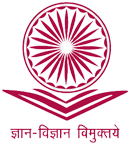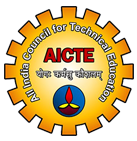About Distance M.Tech in Computer Technology & Application
Distance M. Tech in Computer Technology & Application, is a postgraduate course in computer engineering. The duration of the Distance M. Tech. in Computer Technology & Application course is 2 years, divided into 4 semesters. Distance M. Tech. in Computer Technology & Application entails a thorough examination of the several applications of computer technology.
The distance M. Tech in Computer Technology & Application course's curriculum is designed to give students hands-on experience in computer science engineering. The course's key topics include computer graphics, object-oriented systems, advanced database systems, internet technology, cryptography and network security, computer simulation and modeling, software testing, and design and analysis of algorithms. MTech in Computer Technology & Application is an excellent opportunity for those with an interest in technology to learn about the theory and practice of computer science.
Who Should Pursue Distance M.Tech in Computer Technology & Application
Those who fit certain requirements and have particular objectives may find that a distance M.Tech in Computer Technology & Application is a good fit. Some applicants who may be interested in applying to this program are listed below:
Working professionals
Distance M.Tech programs frequently cater to students who are already employed in their fields. A distance M.Tech can be a practical choice if you are a working professional in the field of computer technology and want to improve your abilities and knowledge without pausing your job.
Career Advancement
If you are an engineer or computer science graduate wishing to develop your career and take on more specialized or senior-level jobs, a distance M.Tech in Computer Technology & Application may be helpful. A stronger work market and increased wage potential may be made available by this advanced degree.
Aspiring Researchers
Pursuing a distant M.Tech might serve as a stepping stone towards more research options, such as Ph.D. programs, if you have a passion for research and wish to delve deeper into particular fields of computer technology and applications.
Flexibility
For people whose personal or professional commitments make it difficult for them to attend a typical on-campus program, distance M.Tech programs are excellent. A distance M.Tech program may be a good choice if you need the freedom to study anywhere you choose and at your own speed.
Specialization
Within the subject of computer technology and applications, distance M.Tech programs frequently offer a variety of specialties. A focused distance M.Tech can help you become knowledgeable in a particular field of int
Self-discipline and motivation
If you think you have these qualities and can maintain your focus on your studies without regular in-person supervision, a distance M.Tech may be the right choice for you.
Is M.Tech through distance education valid?
Regarding the legitimacy of MTech distance learning, there are certain concerns. There are a substantial number of universities conducting and offering admission to MTech degree programs in the distant mode, but not all of them have gone through the UGC and DEB approval procedures. Candidates who wish to enroll in the Master of Technology (MTech) program must confirm that the universities they have chosen have been approved by the appropriate educational authorities.
University approvals to check before pursuing M. Tech distance education
Anytime, Anywhere



Are You Eligible ?
Education
Students with a B. Tech degree are eligible to apply for admission to the appropriate M. Tech program. Students who have earned an M. Sc. in science, mathematics, computer science, electrical engineering, or a related discipline are eligible to apply for admission to the appropriate M. Tech. program MCA graduates may also apply for admission to M. Tech. computer engineering branches that are pertinent to them
Fees for B. Tech Distance Education
50K – 80K Per Year (As fees varies according to universities)

Assessment & Examination
The following steps are commonly included in the exam and evaluation process for M.Tech Engineering students using distant learning:
Internal assessment (IA) : is a part of the evaluation that is based on work done on assignments, tests, and other coursework throughout the semester. IA is normally worth roughly 25% of the course's overall grades, though this varies from institute to institute.
The term-end examination (TEE): is a thorough test that is given at the conclusion of the semester. Normally, the TEE accounts for 75% of the course's overall grades.
Project: In certain institutes, the evaluation procedure includes a project. A research article, a design project, or an internship report are all acceptable project types. Although the weighting of the project varies from institute to institute, it normally accounts for 10% of the course's overall scores.
For each course, the required passing percentage is typically 40%. But certain institutions might have a greater pass rate.
Curriculum
|| Semester I & II
| S. No. | Subject Code |
| MTCTA 101 | Mathematical Foundation of Computer Application |
| MTCTA 102 | Programming System |
| MTCTA 103 | Object Oriented Modeling &UML |
| MTCTA 104 | Advanced D.B.M.S. |
| MTCTA 105 | Computer Graphics and Multimedia |
| MTCTA 106 | Lab-I (103,104) |
| MTCTA 107 | Lab-II (102,105) |
| MTCTA 201 | Advance Soft Computing |
| MTCTA 202 | Advance Computer Network |
| MTCTA 203 | Advance Programming with J2EE |
| MTCTA 204 | Software Engineering & Project Management |
| MTCTA 205 | Lab-III (201, 202) |
| MTCTA 206 | Lab-III (201, 202) |
| MTCTA 207 | Lab-IV (203, 204) |
|| Semester III & IV
| S. No. | Subject Code |
| MTCTA- 301[1] | Data Mining and ware housing |
| MTCTA- 301[2] | Web Engineering |
| MTCTA- 301[3] | Bio Informatics |
| MTCTA - 302[1] | Software testing and quality assurance |
| MTCTA- 302[2] | Ad-hoc Networks |
| MTCTA- 302[3] | Mobile Computing |
| MTCTA-303 | Seminar |
| MTCTA-304 | Dissertation Part I (Literature Review/Problem Formulation/ Synopsis) |
Job options
Jobs directly related to your degree include:
| Software Engineer/Software Developer | AI/ML Engineer |
| Systems Engineer | Network Engineer |
| Data Scientist/Analyst | Database Administrator (DBA) |
| Embedded Systems Engineer | Cloud Solutions Architect |
| Research and Development (R&D) Engineer | Information Security Analyst |
| Software Architect | IT Manager |
| Product Manager | Quality Assurance (QA) Engineer |
| SIT Consultant | DevOps Engineer |
| Systems Analyst | Machine Learning Engineer |
| Cyber Security Analyst | Research Scientist |








